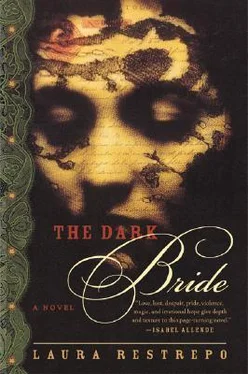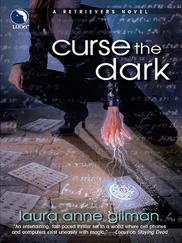“And today, have you reached a conclusion?”
“Maybe Sayonara loved too much, or maybe she couldn’t love. I still don’t know.”
“It’s the same thing that happens to all of us,” says Machuca. “We professional women divide ourselves into a hundred loves and we don’t know how to content ourselves with the joys of one single love.”
In the capital, I dedicated myself to inquiring what happened to the life and paintings of don Enrique Ladrón de Guevara y Vernantes. I learned that during the first two years of his life in Tora, his family was unaware of his whereabouts — or preferred to ignore that they were — and gave him up for lost, or at least well hidden. Until the day that a friend of the family who was passing through the oil city on business brought back news of him.
“What is Enrique doing in Tora?” asked a maternal uncle, Alfonso Vernantes. “How does he support himself?”
“He paints,” answered the friend. “I saw several of his paintings. Your nephew Enrique paints women who reek of syphilis.”
They went to look for him, found him, pulled him kicking and screaming from Fideo, and committed him to an insane asylum, according to some versions, and according to another, they sent him out of the country, all with the greatest stealth to avoid scandal or gossip. When I returned to Tora, I told this to Todos los Santos, who already knew.
When they took him out of La Copa Rota, did don Enrique kick with his short, arthritic legs, did he beg with his sharp dwarf’s voice, did he order with the haughty voice of the wealthy that he be left in peace, and was it all useless? Perhaps. I will never know for certain how that scene happened, that tearing away, because when I ask Fideo, the only eyewitness, she becomes catatonic and I realize that I will only injure her further if I continue throwing memories in her face.
“It wasn’t easy for Enrique to live among those people who are so different from us,” says his sister, María Amalia, an elderly lady, intelligent and kind, with whom I chatted one afternoon as we had tea. “Or to live in that miserable place he chose. In one of his letters to my mother he confesses it, he says that every day away from home requires of him struggle and determination.”
“Did your mother know where he was?” I ask.
“Of course, she always knew, but she never let anyone else know. They took Enrique out of there after my mother’s death, because they wouldn’t have dared to while she was still alive.”
“Why didn’t your mother ask him to come back, if he himself had confessed that it wasn’t easy for him to live there?”
“Because my mother, who adored him, was well aware that for Enrique it would be even harder to make a place for himself in our family. Do you know what it means to be a dwarf among such proud people? If you ask me what the best thing my brother found in that other world was, I would say that it was invisibility. There he felt invisible, without witnesses to his deformity. That is priceless.”
After the committing of don Enrique — or his deportation, whichever it was — Alfonso Vernantes, the maternal uncle, personally traveled to Tora with the inquisitorial task of gathering up every last painting, to destroy the evidence of the passage of his family name through a world of infamy. If the painting was a seascape, sunset, or Paris scene, he paid little for it. He offered a better price if women appeared, if they were naked it rose higher, and when he had gathered five or six he would burn them on a pyre. In Tora they still tell stories of those strange negotiations, like the one about a small drawing of two girls embracing on a bed, for which don Alfonso paid a fortune.
Nothing makes you more vulnerable than having the task of guarding a secret that is already public knowledge — as all secrets tend to be — or easier prey for whoever decides to take advantage of that weakness. Only a few days passed before Piruetas smelled the opportunity of a lifetime and joined forces with a photographer friend who dabbled in painting, to begin producing a series of obscene paintings that they signed with don Enrique’s name and presented to don Alfonso as if they were original works by his nephew.
For a few weeks don Alfonso fell blindly into the trap. He saw in Piruetas and his photographer friend two irreplaceable accomplices for his delicate mission, because they were astute and discreet and because they could do what was forbidden to him: circulate among the lower echelons, scouring dangerous bars and prostitutes’ hovels in search of incriminating evidence. During that time, Piruetas and his accomplice lived the high life at the expense of the Ladrón de Guevara y Vernantes’s scruples, until don Alfonso discovered he was being duped. In his haste to swindle, Piruetas grew so bold that he began to produce paintings that were more and more ordinary and slipshod, to which was added a dispute with the photographer friend over money matters that caused a rupture between them. So, from then on Piruetas assumed the artistic labor himself and without assistance from anyone: he, who had never held a pencil in his hand, not to mention a brush.
“This can’t be Enrique’s,” don Alfonso finally said one day, suspicious. “It’s too awful.”
“It’s modern painting, don Alfonso, and you just don’t understand it,” replied the pseudo-painter in defense of his scrawling.
But even don Alfonso, who because of disgust and ethics barely looked at his nephew’s paintings, even don Alfonso himself, they tell me, in spite of being blinded by propriety, saw enough to realize the difference and drive off the impostor.
“Where can don Enrique be?” I ask Todos los Santos. “Still locked up in his asylum, or off in some remote corner of the world?”
“He died some years ago from syphilis, as do all those who have known true love.”
“Strange,” I say. “No matter what his sister says, I think he found his chance for happiness at La Copa Rota.”
“Happiness, no,” she contradicts me, she who refuses to let a hollow phrase pass without filling it with cruel realism. “Let’s say that at La Copa Rota he set down his fate, and that if he wasn’t happy, at least he found his light.”
“They say that some men take refuge in bordellos seeking the same thing that monks do in monasteries.”
“Is that from some book?”
“Probably.”
“No wonder. Books are filled with shit like that.”
“These women don’t understand how things are,” Olguita tells me later, when we are alone. “They think they do but they don’t. Trust me when I tell you that Sayonara did know how to love, and that she loved Payanés from the very beginning and to the point of delirium.”
“Then why did she do things the way she did?”
“Because the paths of the heart are not straight, but snaking and twisting, and they let us see where they begin but not where they end. But that’s getting tangled up in conclusions of a story that begins plain and simple: Payanés was the first unknown man that Sayonara was able to get to know. In him she found bread for her hunger and water for her thirst.”
“He has the sweetest skin I have ever known,” Olguita swears she heard Sayonara say. “But not sweet like sugar, sweet like an old pain. The sun keeps it brown from the waist up, but it is reduced in color on the rest of his body. What I miss most is his chest, his big chest with the rose tattoo, soft and bulky but only a little, just enough to be strong like the chest of a man and kind like the chest of a woman. Deep within his eyes nests a sadness, a sort of helplessness in that mixed yellow color, a yellow burning with green: the eyes of a stray animal. His hair, which is also of a double color, sometimes seems black as night and sometimes shines with silver threads.”
Читать дальше












